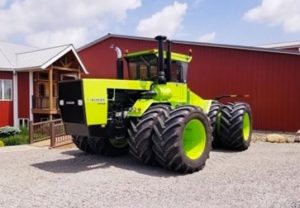Today’s modern economy rests upon a foundation of 3 industries. These most critical industries are:
- Commercial farming (the last +400 years).
- Mining (the last 5,000 years for metals, stone products, and energy like coal and uranium).
- Crude oil (for the last 150 years).
Everything currently manufactured, constructed, or transported consumes products from these 3 industries. If there is impairment to any of these industries, it raises prices, reduces efficiency, lowers functionality, and reduces the overall standard of living across the globe. While there are some substitutions available for some of the specific mining and oil distillate products, they are far more expensive and less functional. Other mining products have no substitutions at all. And while no one wants their home next to a mine, rendering plant, or oil drilling operation, the lifestyle enjoyed by the world relies upon them operating somewhere convenient for their usage.
Whatever new methods and technologies are developed to potentially replace these 3 industries, they must provide reduced cost and improved functionality. Otherwise, it is highly unlikely they’ll be successful in the long term. I attended a dinner with two educated professionals older than me, who wanted to immediately stop fossil fuel usage. They were shocked when I told them that all of the wind and solar power in the world amounts to barely 1% of the electricity generation. Going forward, that number is very likely to drop as government subsidies are drying up for additional wind and solar installations, let alone their ongoing repairs and maintenance. When that occurs, most of those structures will likely go fallow (there are already over 14,000 abandoned wind turbines in the U.S.). This is what happened in the last “sustainable energy” bubble under President Carter 40 years ago, and anywhere the subsidies run out, like Spain in 2010.
Whatever your attitude about these 3 industries, we rely upon them. (For example, swapping a gasoline-powered car for a lithium battery car means a whole lot more lithium strip mining must be done somewhere plus the coal to charge it). Which is why it is disappointing that U.S. government regulations effectively prohibit: building new oil refineries, nuclear power plants, new coal mining, and new technologies for farming or producing food. Not everyone has an economics background, which is fine. But when forceful opinions, from a state of ignorance, prompt legislators to make policy, then we’re all left worse off.

